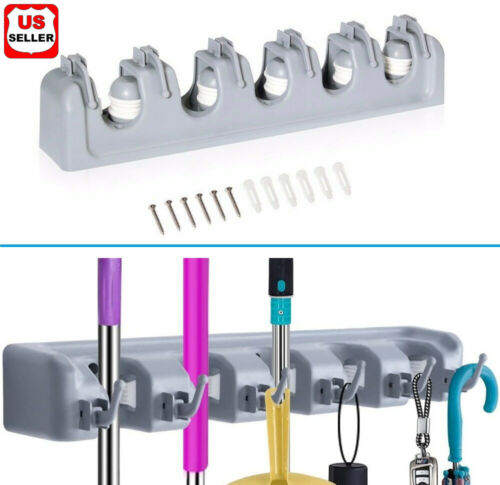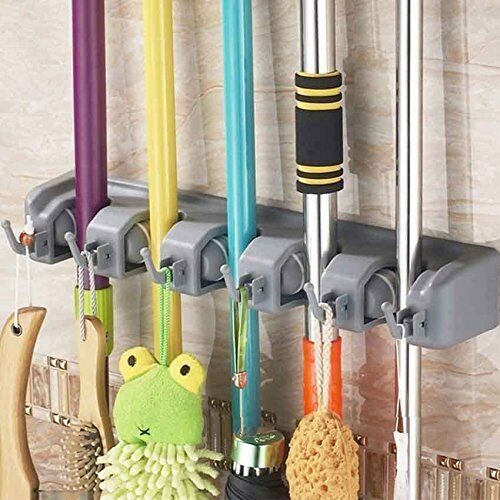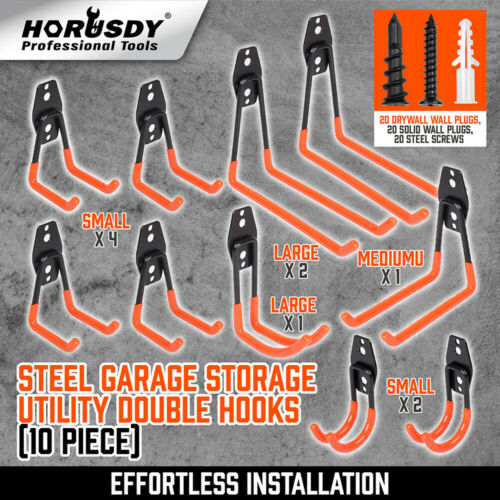-40%
6 Railroad Spike Hooks, Industrial / Rustic Coat Hanger - Natural Rust Patina
$ 36.95
- Description
- Size Guide
Description
Inspired by reclaimed antique railroad spikes, I hand forge each hook individually. Feel them, and every dent and notch from years of supporting massive train cars is obvious. I love how these vintage hooks bring to mind the world of a hundred and fifty years ago, when cross country railways connected young America long before the internet ever did.Dimensions of these unique, hand-forged, rustic hooks vary, but are approximately 5.25" x 2.75" x 1.5", with a hanging surface depth of 1.5”. Includes 6 hooks plus mounting hardware. The patina on these hooks has a slightly rusted, gray and maroon look, and are for indoor use in a dry environment. In order to maintain the rustic look, the hooks aren't coated, and will rust if exposed to water.
Railroad spikes are tough customers, and these industrial hooks will hold almost anything you see fit to hang from them. I'll include hanging hardware with your purchase.
These vintage hooks are not just a piece of history; they're super versatile for getting organized in the here and now. Try using a railroad spike hook as a: Coat hook, clothing hook, towel hook, pot hanger, pot rack, purse hanger, handbag hanger, jewelry hook, necklace hanger, cable storage, curtain rod holder, tool storage, boot hook, ironing board holder, wreath hanger, decoration hooks, art hanger, picture hanger, sports equipment hanger, dog leash hook. Use them in the living room, bedroom, hallway, entrance, foyer, and mud room.
About The Eldritch Hammer Shop
All of my work is hand-forged in America in my shop in Washington D. C. I use a combination of tools handed down to me from my father's woodworking shop, tools I've made myself, and those I've collected from smiths who've gone before.
Anvils
My oldest anvil was made by Mousehole Forge in Sheffield, England, which was one of the first (and longest running) anvil factories in the world, having started operations in the early 1600s. Around 1825, long before electric wiring reached the site, this water wheel-powered workshop built the 160 lb. anvil that has been in my family for generations. As I listen to the ring of my hammer striking steel on this anvil, I'm amazed to imagine all of the myriad pieces that have been forged on it over the past 200 years.
My primary anvil was built in 1906 in Brooklyn, NY by the Hay Budden anvil company, widely recognized as makers of some of the highest quality antique anvils still in use today. 1906 was just a few short years after Hay Budden had set up operations in America, after being active in Europe since the early 1890s. This 180 lb. anvil is the one that I use the most, and I've carefully cut, welded, and forged a heavy stand for it that is the perfect height for me, and fits like a glove.
Tools
I've always loved that, with just my forge and anvils and a hammer, I can make myself the very tools I need to forge everything else that comes out of my shop. So, most of my tongs are handmade, as well as almost all of my jigs and hardy tools, and of course my custom shop tables and anvil stands. I love the history of antique tools, but sometimes they haven't held up well over the years. So, I have a lot of hammers for which I've replaced the handles with wood I shaped myself to fit my own hands.
The massive maple stump I use for dishing was a gift from a neighbor after he had to take the tree down. It's a meaningful way for that tree to continue to contribute to lives around the world through my smithing work.
I have three blacksmith’s leg vices weighing between 70 and 100 lbs. that I restored myself after they spent years out in the open on farms in the American northeast.
Stock
Sometimes only new steel will do, but I use reclaimed materials whenever possible. In my shop you'll find pieces forged from reclaimed railroad track and spikes, leaf and coil springs from trucks and cars, giant circular saw blades, lawnmower blades, broken hand tools and other farm equipment, rebar, bed frames, files… Local junk yards are definitely on my must-see list!















